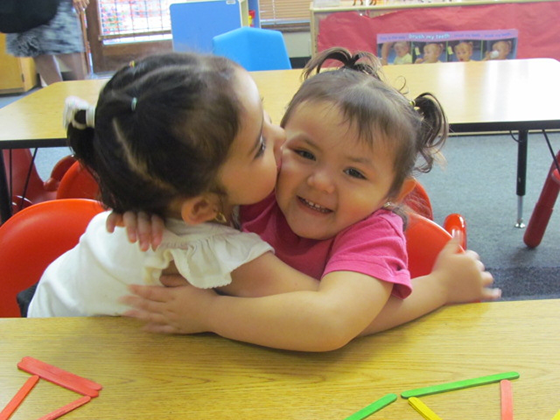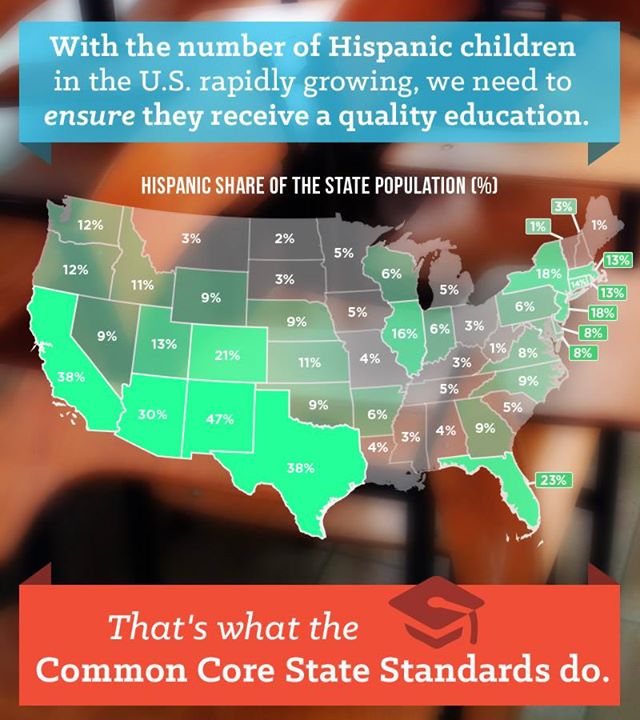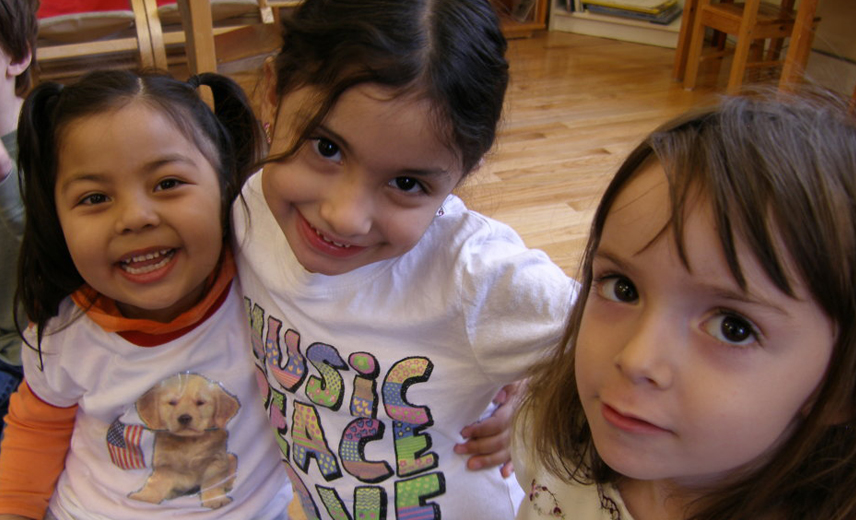Helping Babies Achieve Their Full Potential: A Look Back at ZERO TO THREE’s 2019 Annual Conference

Babies. They’re cute, they’re cuddly, and it’s easy to think of them as carefree. But the hard truth is we’re not doing enough to set up the 12 million infants and toddlers who live in the United States for success. Their brains are growing faster in those first three years than at any later time in their life cycle. They’re also taking their first steps, acquiring cognitive, language, and social and emotional skills, and they’re often growing up in families facing major life stressors such as poverty, cultural biases, racism, and harsh immigration policies.
According to data from the State of Babies Yearbook 2019, an estimated 51% of the nation’s 12 million babies and toddlers are children of color. And while not all children of any race share the exact same experiences, chances are high that many of them will face tougher challenges than their White peers because of the socioeconomic discrepancies they often face. New Census data released in September shows that Hispanic children are three times more likely to live in poverty as white babies, and black babies are four times more likely. The State of Babies data highlights that the effects of disparities appear early—within their first 2 years infants from higher and lower socioeconomic status families already exhibit a 6-month gap in processing skills critical to language development.
These were some of the issues ZERO TO THREE, an early childhood development nonprofit , took into consideration when they organized this year’s Annual Conference in Fort Lauderdale, Florida. During the October 2-4 event, they hosted workshops and plenary sessions on everything from workforce policies that would allow for parent-child bonding time through time off and flexible schedules; addressing gaps in access to higher education that make it tough for many early childhood education professionals to meet new academic requirements; trauma-informed pediatric medical and mental health support; greater gender participation in parenting; and consciousness raising around the benefits of multilingual learning.
“One of the biggest reasons we put this conference on is for professionals in the field to have those opportunities to learn, grown, make connections, and really advance in the field,” ZERO TO THREE Communications Manager Max Samis told ProgressReport.co. “We want all babies to have a strong start in life, so we are trying to put them in the best possible position to succeed.”
Dual Language Learning

During the workshop Shaping the Early Learning Environment for Dual-Language Learners in Washington: From Legislature to Classrooms, presenters Sarah Roseberry Lytle, director of outreach and education at the University of Washington Institute for Learning & Brain Sciences, and Michelle Roberts, professional development manager at the Washington State Department of Children, Youth, and Families, began their lecture by asking a room of mostly educators to play a game of true or false. The results of their group quiz proved the point: more needs to be done to debunk widely held beliefs that kids can get confused when learning more than one language at once.
“All children learn language at the same pace. True or False?” They asked, requesting that participants stand up for answers they believed to be true. Progress Report didn’t do an official headcount but a quick glance around the room showed that nearly everyone was standing when they should have been sitting down.
Their research was funded through Washington State’s HB 1145, which developed an infrastructure for supporting dual language learners in early learning settings, and educating teachers, families, and the general public of the benefits of early multilingual instruction. They felt confident the legislation was serving its purpose. In fact, participants in the audience were relieved to know it’s okay for kids to acquire language skills at different paces or to code-switch between more than one language. It simply means they’re utilizing all the communication tools they have in front of them, which, over the long term, will make them excel at paying attention, controlling their impulses, and multitasking.

Equal Access to Parenting and Quality Child Bonding Time
Nurturing relationships stimulate the brain’s ability to build a solid educational and relational foundation as infants grow. Yet the majority of working parents do not have access to paid family and medical leave, forcing a difficult choice between taking the time they need to bond with and care for their babies and their economic security.Allowing parents time to bond with their babies promotes caring, consistent relationships that help young children to manage stress, exercise self-control, and develop positive social skills, and can help parents to catch developmental delays earlier. Challenges in building nurturing parent-child relationships are exacerbated in communities where parents work long hours just to make ends meet, or in ones where kids and parents may be separated by issues such as detention or imprisonment.
It’s all about creating balance in the social and political systems, noted a group of fathers leading a workshop titled “Diversity-Informed Father Engagement Premises and Practices.” This session emphasized the importance of quality bonding time between fathers and their young children.
They said society often gives men a bad rap as disengaged or totally absent, failing to hold up more positive examples of active dads, and remaining oblivious to what stops more dads from doing the same.
“Young fathers face multiple barriers that are personal, economic, and systematic in nature,” said Andre Dukes, Senior Director of the community impact and early childhood advocacy for the Northside Achievement Zone in Minneapolis, Minnesota.
Trauma-Informed Support

With so much going on in the very new lives of babies and toddlers, and the environment they’re being exposed to that may induce stress or trauma even at such a young age, society’s increased awareness of the importance of healthy emotional development takes center stage.
“Oftentimes parents bring their children in and say ‘fix them’ and I have to explain that it doesn’t work like that,” panelist Courtney Clark, a child psychologist and social worker told attendants of the workshop “Addressing Behavior and Trauma Symptoms in Preschoolers in Poverty Through an In-Home, Evidence-Based Program.” She partnered with Robert A. Fox of the Department of Counselor Education and Counseling Psychology in Marquette University’s College of Education in Milwaukie, Wisconsin to help pediatric professionals consider how best to identify and treat babies and toddlers experiencing mental health challenges.
In fact, they built up a system of measuring that allows professionals—or even parents—to consider about three dozen different questions toward a clearer diagnosis and intervention.
For the parents of children who have been held in detention at the border, often separated from their families and under grossly inadequate care, they must have access to voluntary infant and early childhood mental health services and support, noted both panelists andparticipants of a workshop titled “The Border Is Here: Supporting Interdisciplinary Trauma and Diversity-Informed Work With Immigrant Families.”
During this workshop, a pediatric team from the Boston Medical Group repeatedly engaged the audience in storytelling and problem-solving by presenting the real-life case of an immigrant toddler from Honduras whose mother fled the country because of violence, landed in a migrant detention center while crossing the border, and struggled to find work while enrolling her daughter in Migrant Head Start.
First the presenters asked participants to count the various layers of trauma the toddler would have gone through, then consider how hard it must be for the mother, social workers, and doctors to figure out how the child is feeling both emotionally and physically when that child’s demeanor could change at the drop of a hat.
Two of the most important takeaways? Remind parents in these circumstances that they’re doing a good job, that they brought their children here for a reason, and that while life might be chaos, even little things can create a sense of stability and consistency, such as taking their kids to and from school each day. Now, while positive reinforcement alone won’t take away the trauma that these families have experienced, recognizing that immigration policies must be addressed and that families who have gone through these traumatic experiences also need mental health support, it’s a small step that can help parents start the healing process as they rebuild their lives in a new country.
The conversation elevated during this session resonated with UnidosUS, which earlier this year released a report, Beyond the Border: Family Separation in the Trump Era, which examines the direct and indirect harms to children at risk of family separation, and takes an in-depth historical look at immigration enforcement practices and their implications for the present day.
“This session lifted up the critical need for providing trauma-informed supports even for babies and toddlers who have experienced harrowing situations. A child is never too young to experience trauma. Being separated from their parents is one of the most traumatic experiences a child can go through,” said Amalia Chamorro, Associate Director of Education Policy at UnidosUS.
Putting Policy into Practice
These concepts of injustice and inequality were echoed in a plenary speech presented by Michael McAffee, President and CEO of PolicyLink, a national research and action institute focused on advancing economic and social equity.
“We center on the folks whose voices have not been in the room, those who have not been at the table,” he told the audience, adding, “you’re not going to get equity if you don’t deal with race.”

He touted Strolling Thunder™ as marketing genius that touches on the untapped potential of families and early childhood advocates to shape policy. This event, spearheaded by ZERO TO THREE’s Think Babies™, brings infants and their families from all 50 states, and the District of Columbia, to Washington, DC to tell Congress that stronger families, vibrant communities, and a prosperous country, require quality, affordable child care, time for parents to bond with their babies, healthy emotional development, and strong physical health and nutrition.
“Take those strollers and roll up to all those places and force the conversations that people don’t want to have,” he said. “Step into your power and fight for what these babies need.”
And if the people you talk to still don’t seem convinced, you might remind them that these babies will one day grow up and raise other babies, or even care for this nation’s growing elderly population, and that the effects of disparities can be carried over into adulthood. Nationally, on average, 8.3% of infants and toddlers have already been exposed to two or more adverse experiences, according to State of Babies Yearbook data.
“The fact is that babies are the future of this country. The more we invest in babies today, the better off we are in the future,” said Samis. “It’s an issue that touches every person in this country whether we realize it or not.”
If you couldn’t make the conference, check out the behind the scenes interviews with conference speakers. And mark your calendars for next year’s ZERO TO THREE Annual Conference in Salt Lake City, Utah on October 7, 2020.

ZERO TO THREE created Think Babies™ to make the potential of every baby a national priority. Funding partners for Think BabiesTM include the Robert Wood Johnson Foundation, which supports public education aspects, and the Perigee Fund, which supports public education and advocacy aspects. Learn more at www.thinkbabies.org.




